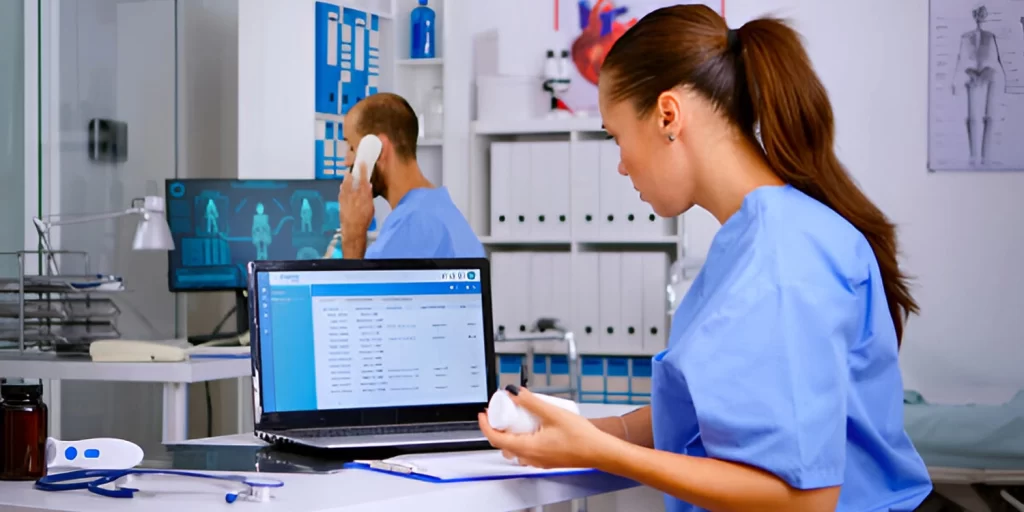Table of Contents
Healthcare is a complex field with numerous abbreviations and acronyms that can sometimes be confusing. One such acronym that is commonly used in the medical billing industry is HME. But what does HME stand for and what is its meaning in billing?
In this article, we will explore the full form of HME and its significance in the billing process.
What Does HME Stand For in Billing?
The Term “HME” stands for Home Medical Equipment., is refers to any medical equipment or devices that are used in the home to aid in the treatment of medical conditions or disabilities. These devices can range from simple items like canes and walkers to more complex equipment like oxygen tanks and hospital beds.
HME is typically prescribed by a healthcare provider and can be essential for patients to manage their medical conditions and improve their quality of life.
HME Full Form in Medical Billing
The full form of HME in medical billing is Home Medical Equipment. This term encompasses a wide range of products that are used in a home setting to treat, monitor, or improve a patient’s health condition. These items are often prescribed by a healthcare provider and may be covered by insurance, depending on the patient’s policy and the medical necessity of the equipment.
What is HME in Billing
HME stands for Home Medical Equipment. It refers to any medical equipment that is prescribed by a healthcare provider to be used in the home setting. This can include items such as wheelchairs, hospital beds, oxygen tanks, and other devices that help individuals with their daily living activities. HME is often necessary for patients who have been discharged from the hospital but still require medical equipment to aid in their recovery or ongoing care.
HME Role And Importance In Healthcare
In the context of medical billing, HME plays a crucial role in ensuring that patients receive the necessary equipment and that healthcare providers are properly reimbursed for these services. When a healthcare provider prescribes HME for a patient, the billing process begins. The provider must document the medical necessity of the equipment and submit a claim to the patient’s insurance company for reimbursement. This claim includes the cost of the equipment, any associated services, and the rationale for why the equipment is needed.
Insurance companies review these claims to determine if the HME is medically necessary and if the cost is reasonable. If the claim is approved, the insurance company will reimburse the healthcare provider for the cost of the equipment. If the claim is denied, the provider may need to submit additional documentation or appeal the decision.
In some cases, patients may be responsible for a portion of the cost of the HME, known as a co-pay or deductible. Providers must clearly communicate these costs to patients upfront to avoid any billing issues or surprises down the line.
Common Misconceptions About HME
One common misconception about HME is that it is only used by the elderly or disabled. While these populations do often utilize home medical equipment, it is also used by individuals of all ages who require ongoing medical treatment or assistance. Additionally, some may believe that HME is only used temporarily until a patient can return to their normal activities.
Understanding The Importance of HME Service in Billing
In the ever-evolving landscape of healthcare, Home Medical Equipment (HME) services play a crucial role in providing essential medical equipment and supplies to patients in the comfort of their own homes. From wheelchairs and oxygen tanks to diabetic supplies and CPAP machines, HME services are critical for ensuring the well-being and quality of life for countless individuals.
One aspect of HME services that is often overlooked but just as important is billing. Proper billing practices are essential for the sustainability and efficiency of HME services, as they ensure that providers are accurately compensated for the equipment and supplies they provide to patients.
Let’s delve deeper into why HME service in billing is so important.

1) Accuracy and Compliance
Billing for HME services requires a keen attention to detail and a thorough understanding of complex healthcare billing regulations and guidelines. Any inaccuracies or discrepancies in billing can result in delayed payments, denials, or even potential legal issues. By ensuring that billing processes are accurate and compliant with industry standards, HME providers can prevent costly errors and maintain a positive reputation with payers.
2) Timely Reimbursement
Prompt reimbursement is vital for HME providers to keep their operations running smoothly. By efficiently submitting claims and following up on unpaid invoices, providers can minimize cash flow disruptions and maintain financial stability. HME service in billing involves tracking claims, verifying insurance coverage, and resolving any issues that may arise during the billing process to expedite reimbursement and ensure a steady stream of revenue.
3) Enhanced Patient Care
Efficient billing practices not only benefit HME providers but also have a direct impact on patient care. By streamlining the billing process, providers can focus more time and resources on delivering quality care to patients, ensuring that they have access to the equipment and supplies they need to manage their health conditions effectively. Smooth and transparent billing procedures can also improve patient satisfaction and engagement, fostering long-term relationships and positive outcomes.
4) The Role of Technology
In today’s digital age, technology plays a crucial role in optimizing HME service in billing. Advanced billing software and platforms enable providers to streamline billing processes, automate claim submissions, track payments, and generate accurate reports for analysis. By leveraging technology, HME providers can minimize manual errors, reduce administrative burdens, and increase efficiency in managing their billing operations.
5) Flexibility and Adaptability
The ability to be flexible and adapt to changing customer needs and market trends is essential for a successful international voice process. Being able to quickly address any issues or concerns and implement necessary changes can help in staying ahead of the competition.
HME service in billing is a fundamental component of the healthcare industry that significantly impacts providers, patients, and the overall quality of care. By prioritizing accuracy, compliance, timeliness, and technological advancements in billing practices, HME providers can ensure financial stability, enhance patient care, and thrive in an increasingly competitive healthcare market. The importance of HME service in billing cannot be understated, and it is essential for providers to prioritize this aspect of their operations to achieve sustainable success and positive patient outcomes.
How Different Types of HME Are Billed
Medical billing services play a crucial role in ensuring that individuals receive the HME they need in a timely and cost-effective manner. When it comes to billing for HME, healthcare providers must adhere to specific coding guidelines and requirements set forth by insurance companies and government programs such as Medicare and Medicaid. Medical billing services help healthcare providers accurately document and submit claims for HME devices, ensuring that patients receive the necessary equipment without delay.
In conclusion, home medical equipment plays a vital role in improving the quality of life for individuals with medical conditions.
By understanding the different types of HME devices, utilizing medical billing services, and working closely with healthcare providers, individuals can access the specialized care they need to thrive in their home environments.
Conclusion
HME is an essential component of the healthcare system, allowing patients to receive necessary equipment in the comfort of their own homes.
Home medical equipment plays a vital role in improving the quality of life for individuals with medical conditions. Understanding the full form of HME and its significance in the billing process is important for healthcare providers, insurance companies, and patients alike.
By working together to ensure proper documentation and communication, we can ensure that patients receive the care and equipment they need to live healthier lives.
Consider the Dazonn Assist to meaning of HME in billing
Choosing the right partner for home medical equipment and medical billing services is crucial for ensuring quality care and streamlined operations. At Dazonn Assist, we are committed to providing top-notch solutions tailored to your needs. Our comprehensive range of home medical equipment offers convenience and reliability, helping patients maintain their independence and comfort at home. Coupled with our expert medical billing services, we ensure that healthcare providers can focus on delivering the best possible care without the administrative burden.

As a writer, editor, SEO strategist, and supporter of the Dazonn Assist, I find more joy in writing content about Bussiness development and outsourcing services.








